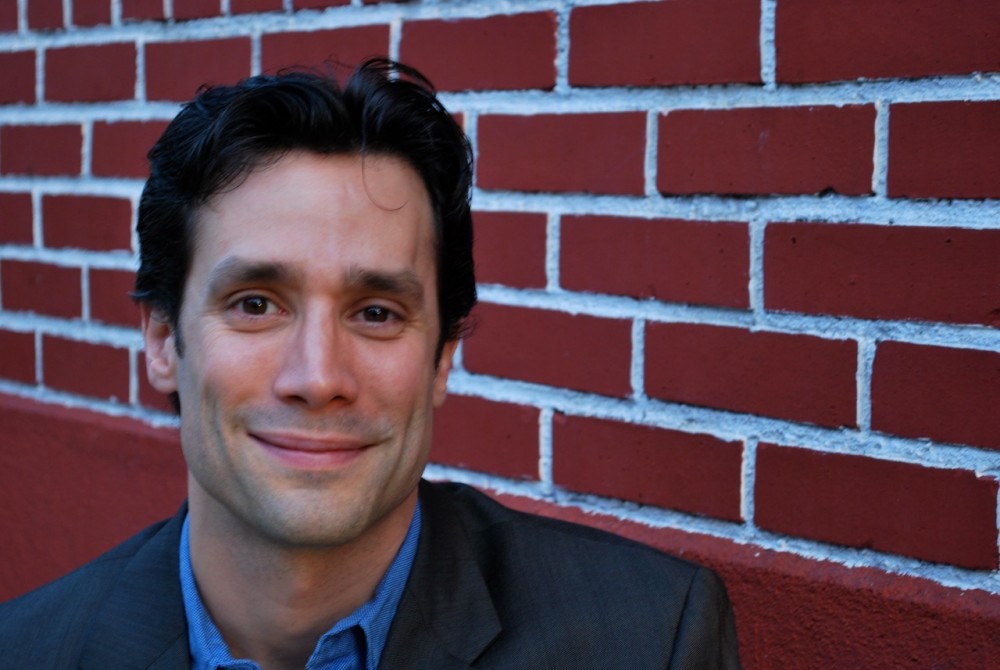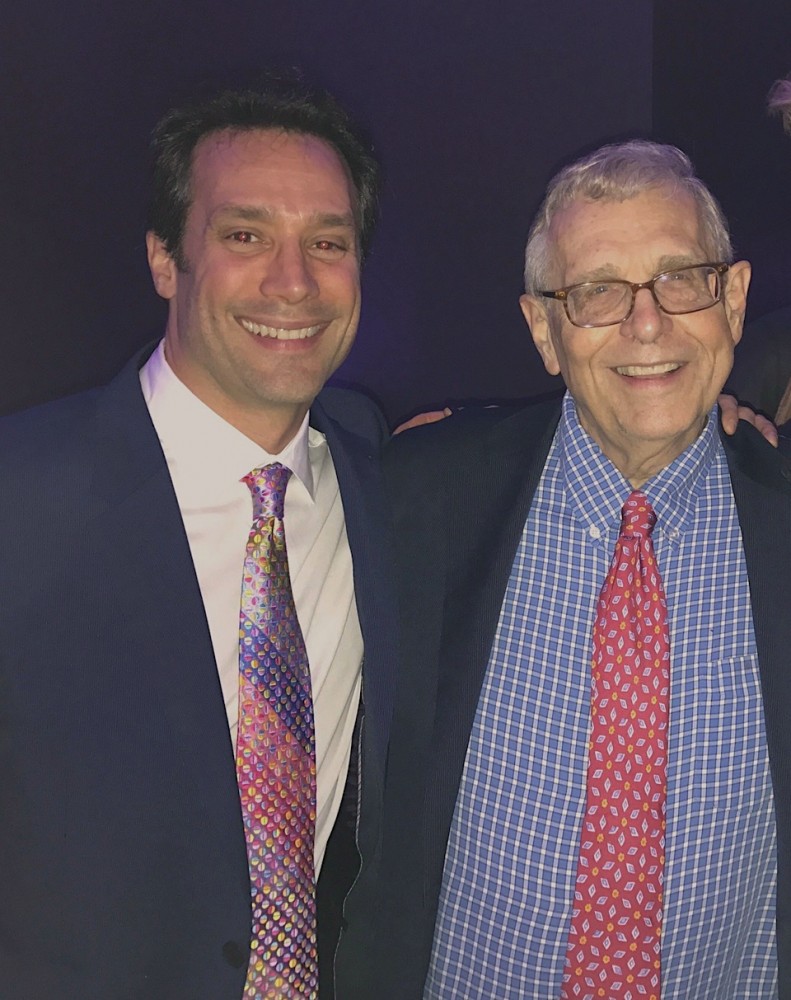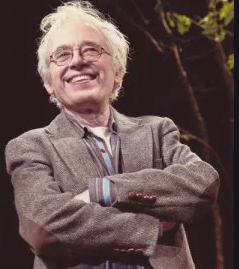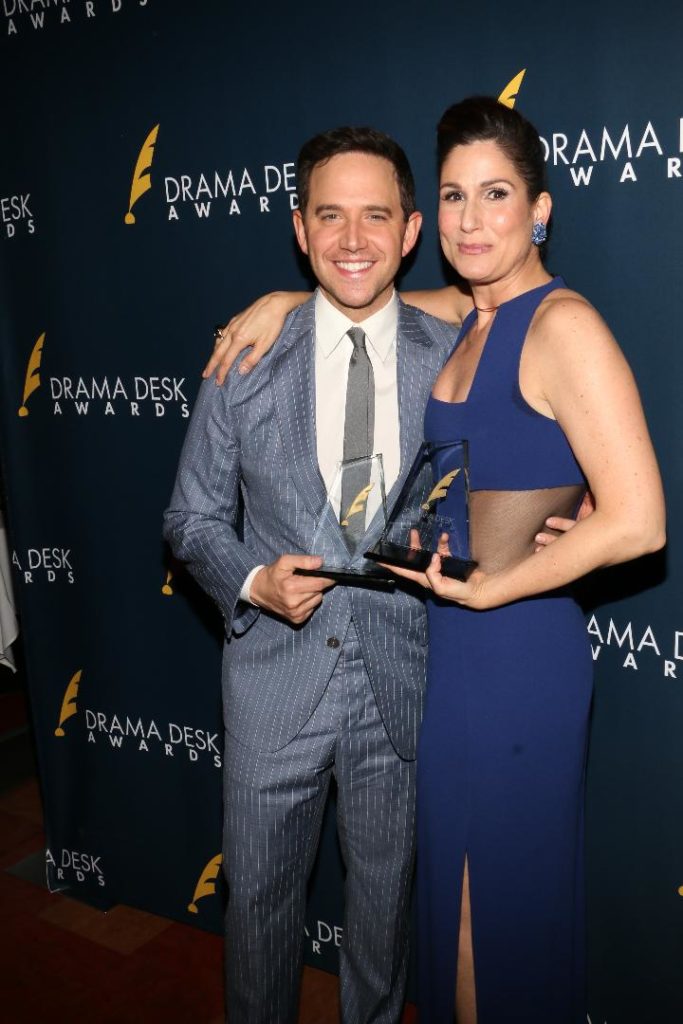By Sherry Amatenstein
The night Seth Greenleaf turned 9, Nine won the Tony Award for Best Musical.
The now 46-year-old theater producer http://greenleafproductions.com was mesmerized by the play based on Federico Fellini’s masterwork film 8 ½, but also prideful. His father, a one-time textile producer had capitalized on the opportunity to invest in the musical, to become the lead producer. It was inevitable Greenleaf would not be content watching theater. “I accompanied my father to the set of musicals he produced and I fell in love.”
Theater loves him back: Shows he has been involved with include 2013 Pulitzer-prize winner Disgraced, the 50th anniversary production of Who’s Afraid of Virginia Woolf? Lady Day at Emerson’s Bar and Grill, Book of Mormon, and the riotous British import The Play That Goes Wrong.
Greenleaf and I spoke on the eve of the November 4th opening of his latest, the drama American Son which stars Kerry Washington and Steven Pasquale as an estranged interracial couple in a Miami police station desperately trying to find out what happened to their missing teenage son.
Q. What Attracted You to American Son?
A. It reminded me of Disgraced in that it is emotionally raw. Audiences are on the edge of their seats for 85 minutes. Joyous musicals are great but witnessing that sense of collective tension is what anyone in the theater business lives for. People are penetrated, their chests open … The play is uncomfortable, yet exhilarating. Kerry can do TV and movies the rest of her life but artists like her will still return to the theater for the excitement of being on that tightrope.
Q. American Son’s website actually has a guide https://opportunityagenda.org/sites/default/files/inline-files/AmericanSonDiscussionGuide_1.pdf to help people engage in conversations about the tough issues the play brings up – racism, the legal system…. Hopefully it can help create a true understanding. But to shift gears, how did you get involved in Menopause?
A. Many years ago a woman in my company saw a small production of Menopause and tried to convince the rest of the partners – three guys! – that it had commercial potential. She had to fight hard to drag us to the play. That was over 10 years ago. Lo and behold, there have been thousands of productions around the world. It’s the breadwinner of our company. Menopause is so successful because it addresses something women don’t talk about and helps them realize they’re not alone in what they experience.
Q. What’s it been like to not just produce Menopause, but direct a show about something you will never experience?
A. Jerome Robbins was never in a gang and he directed and choreographed West Side Story. An artist needs the capacity to feel empathy and tell stories we’re not personally a part of. Of course, I got tons of education throughout!
Q. You have an amazing producing oeuvre, but obviously not everything hits big- Groundhog Day, American Psycho, 9 to 5… Mel Brooks’ famous “Springtime for Hitler” in The Producers comes to mind – intentionally trying to produce a flop and scoring a huge hit instead.
A. It doesn’t matter how good you are, it’s impossible to predict the zeitgeist. For instance 9 to 5 (based on the Dolly Parton movie) was a beautiful, spirited show. Unfortunately it opened in 2008, just after the financial collapse. Things had changed drastically and theatergoers weren’t in the mood for this very expensive popcorn musical even though it had a serious message about female empowerment in the workplace. I think it would have had a different outcome if it opened today… Producing involves making 100,000 decisions – the finances, choosing the creative team, the technical team – and then managing them all. You get as many decisions right as you can, but you still can’t control the outcome. I sit here scratching my head over what ultimately does or doesn’t succeed.
I could list the names of shows – I won’t! – that in my mind are not likely to be Tony nominees but turn out to be huge hits.
Q. You also produced and directed a well-reviewed documentary, Flag Football about hyper-masculine football players who are gay and striving to become the next Gay Bowl champions. How did you get involved with this project?
A. Working in the theater I’ve had lots of wonderful friendships with gay men. When I met the Warriors playing in the park and they asked me to be quarterback, I had a moment of shock when I realized it was a gay football league. There was a misconception I had – as do many straight people – that gay men are soft and feminine. It’s marginalizing to assume all members of any group are just one thing.
Q. No matter what medium you work in, it feels like your aim is to break barriers, start occasionally uncomfortable conversations and hopefully affect audiences in profound ways. Anything else?
A. That is probably my strongest driver but, as with something like The Play That Goes Wrong, especially during these dark times. . . we need a break to laugh!

























